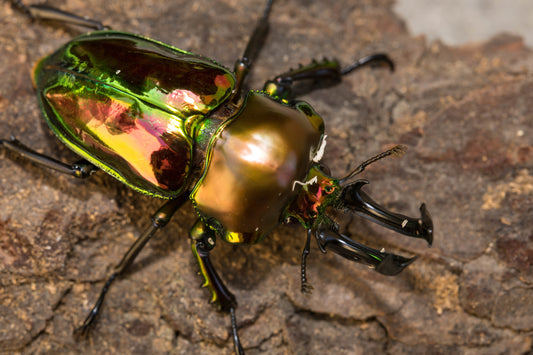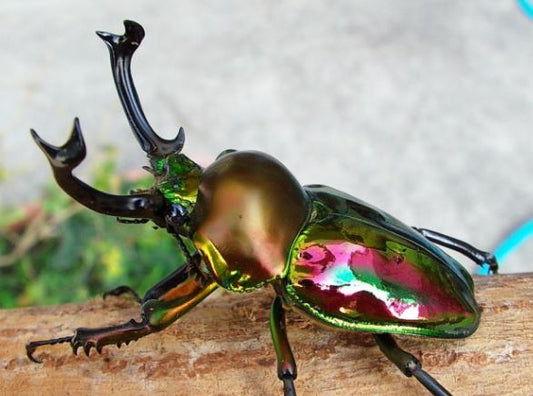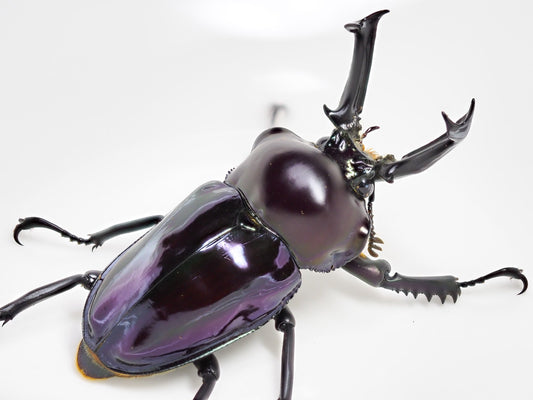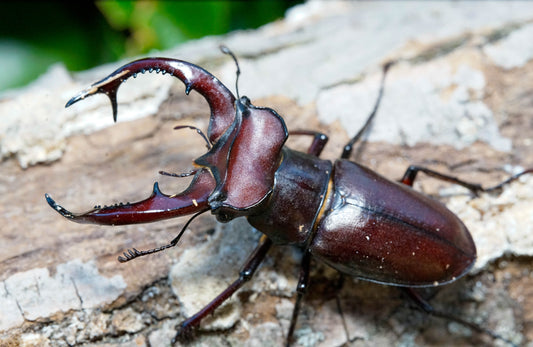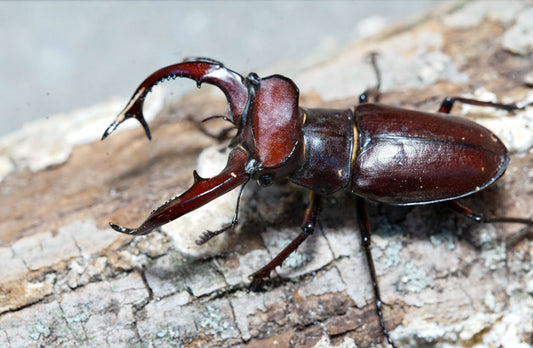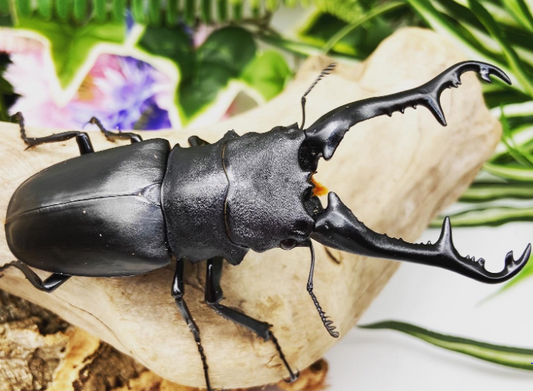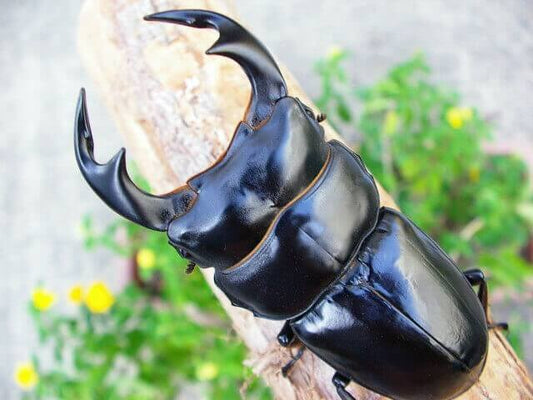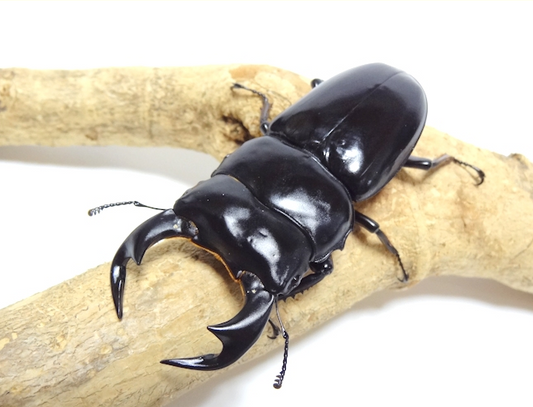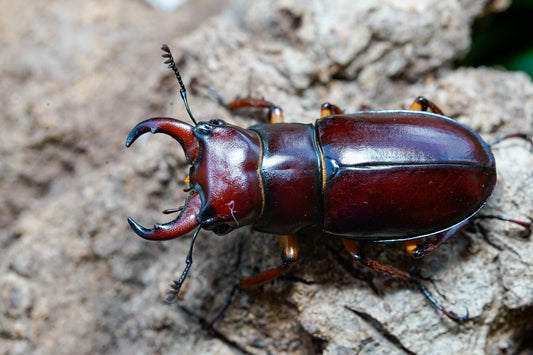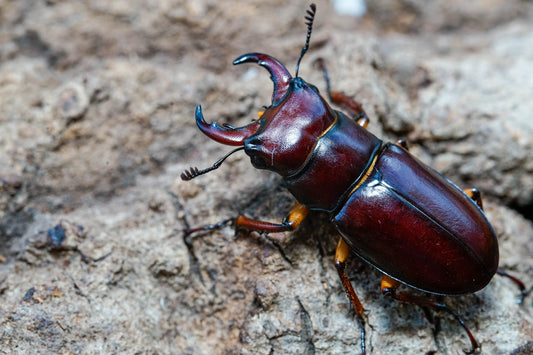supplies
Kawaratake kinshi
Kawaratake kinshi
Out of stock
Couldn't load pickup availability
What is Kinshi?
Kinshi is sawdust that has been colonized by mushroom mycelium. Stag beetle cannot digest raw sawdust because of a component in the wood called lignin. The mushroom mycelium decomposes lignin in the wood, which allows stag beetle larvae to easily digest the wood.
There are two types of kinshi: hiratake and kawaratake.
Hiratake, otherwise known as Pleurotus ostreatus kinshi is suitable for Dorcus, Prosopocoilus, Phalacrognathus, and Hexarithus.
Kawaratake, also known as Tramestes veriscolor kinshi is generally accepted by all species. For Allotopus and Mesotopus, it is the only kinshi they will accept.
Basically, both kinshi types are accepted by all stag beetle species on this site except Cyclommatus and Lucanus.
Why Kinshi?
Kinshi is mainly used by many hobbyists because the stag beetle larva that feed on it has a high chance of becoming a major male. It is also stable compared to flake soil, so the quality can be maintained for a long time.
If you don't plan on using the kinshi right away after receiving, they can be stored in the refrigerator for up to 5 months.
L1 larvae are usually fragile so it's recommended to use kinshi for L2 and L3 larvae.
**If you receive kinshi that is very fresh, use the kinshi 2-3 days after the whole thing turns mostly white. Fresh kinshi can sometimes produce heat that could stress the larvae.
Note: 16oz, 32oz, and 64oz kinshi are pressed and shipped in their respective containers. You will need to transfer the 1.25 gal kinshi to your own containers.
If you plan on purchasing multiple 1.25 gallon bags, please contact us.
Shipping Info:
Shipped separately from beetles and larvae.
Packages are usually sent out on Mondays-Wednesdays. Kinshi may take 2-3 weeks to be shipped.
Share
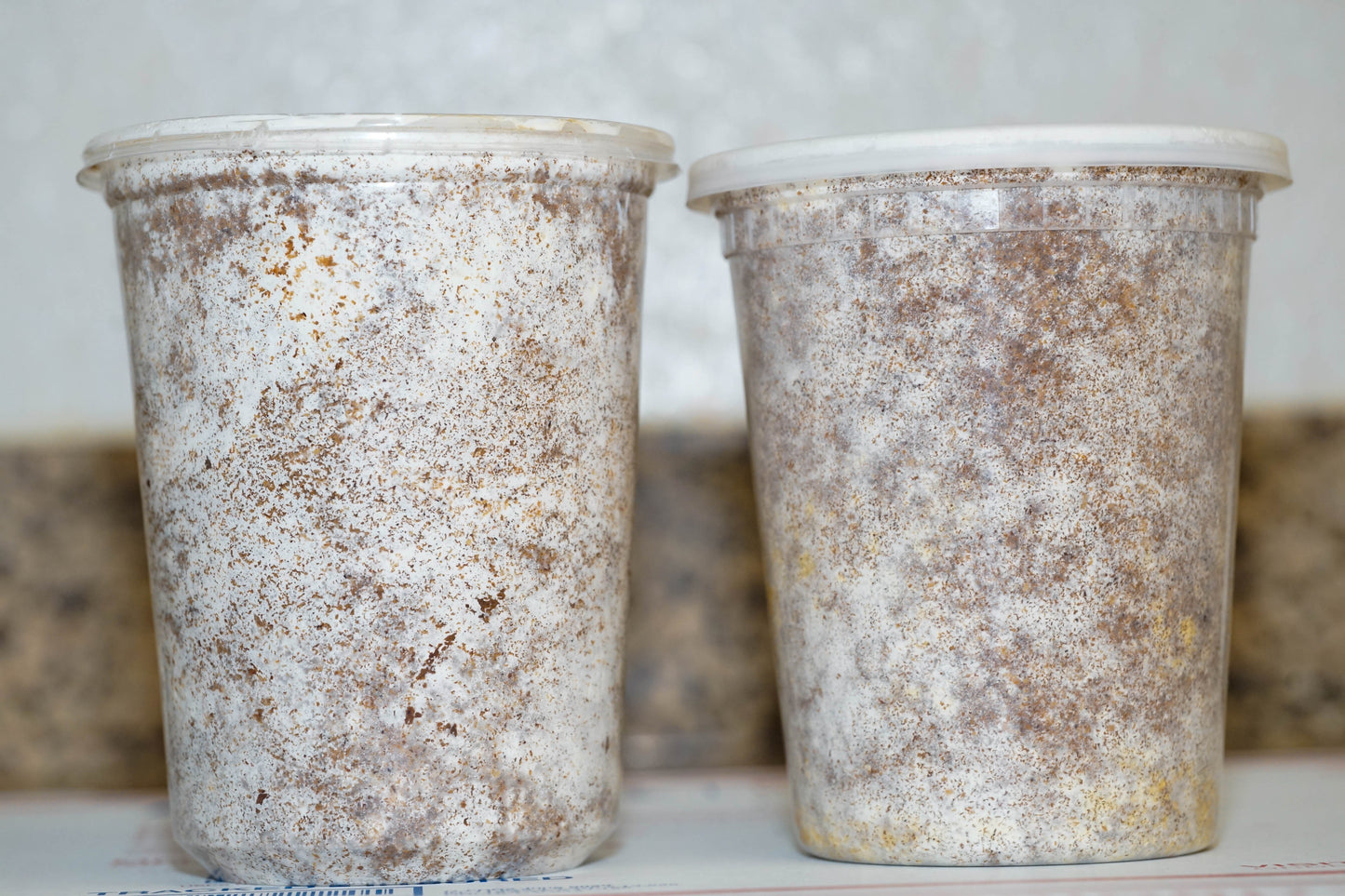
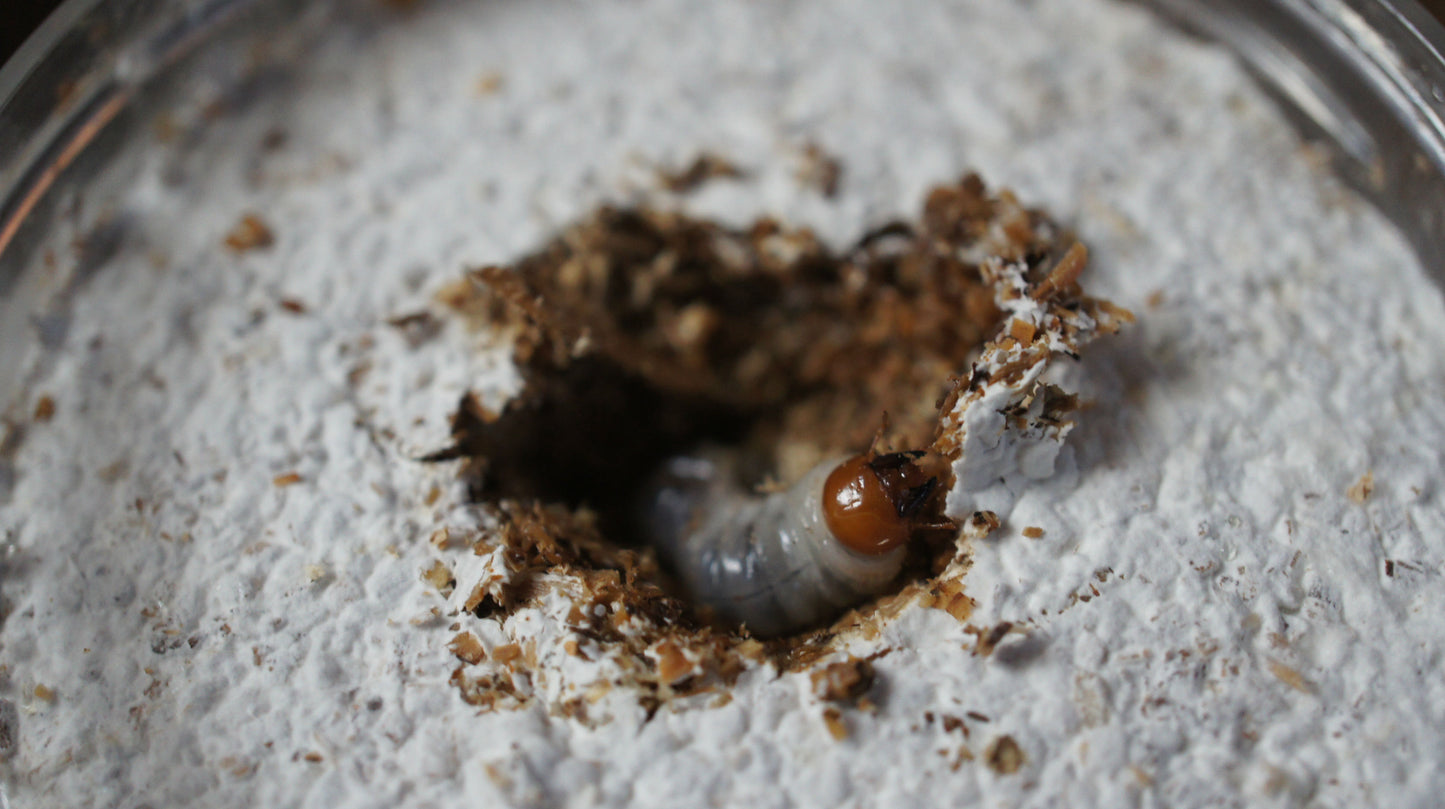
Featured species
-
LARVAE: Rainbow stag beetle (Phalacrognathus muelleri)
Regular price From $29.99Regular priceUnit price / per -
LARVAE: Purple Rainbow stag beetle (Phalacrognathus muelleri)
Regular price $33.00Regular priceUnit price / per -
LARVAE: Giant stag beetle (Lucanus elaphus)
Regular price From $25.00Regular priceUnit price / per$30.00Sale price From $25.00Sale -
LARVAE: Giraffe stag beetle (Prosopocoilus giraffa keisuke)
Regular price From $34.00Regular priceUnit price / per$39.99Sale price From $34.00Sale -
LARVAE: Antaeus stag beetle (Dorcus antaeus antaeus)
Regular price $39.99Regular priceUnit price / per -
LARVAE: Reddish-brown stag beetle (Lucanus capreolus)
Regular price From $20.00Regular priceUnit price / per


